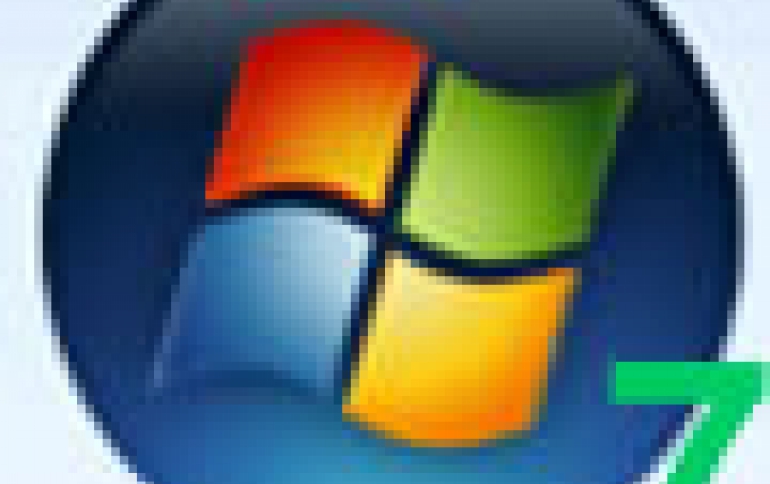
Introducing Windows 7
Microsoft officially announced
Since Microsoft began development of the next version of the Windows client operating system it has been referring to it by a codename, "Windows 7." But now it the company makes it official.
"Simply put, this is the seventh release of Windows, so therefore "Windows 7" just makes sense," said Mike Nash, vice president of Windows product management.
There have been a few cases at Microsoft when the codename of a product was used for the final release and this one is a first for Windows.
The decision to use the name Windows 7 is about simplicity, Microsoft said.
"Over the years, we have taken different approaches to naming Windows. We've used version numbers like Windows 3.11, or dates like Windows 98, or "aspirational" monikers like Windows XP or Windows Vista. And since we do not ship new versions of Windows every year, using a date did not make sense. Likewise, coming up with an all-new "aspirational" name does not do justice to what we are trying to achieve, which is to stay firmly rooted in our aspirations for Windows Vista, while evolving and refining the substantial investments in platform technology in Windows Vista into the next generation of Windows," Nash added.
Microsoft plans to unveil more details about Windows 7 in the coming weeks at the PDC (Oct. 30) and at WinHEC (Nov. 27) events. There, Microsoft will be sharing a pre-beta "developer only release" with attendees of both shows and giving them the first broad in-depth look at the operating system.
Microsoft has not provided any information about the release date of Windows 7, but it has said it was shooting for three years after the release of Vista, which would mean it would be released late in 2009 or early in 2010.
"Simply put, this is the seventh release of Windows, so therefore "Windows 7" just makes sense," said Mike Nash, vice president of Windows product management.
There have been a few cases at Microsoft when the codename of a product was used for the final release and this one is a first for Windows.
The decision to use the name Windows 7 is about simplicity, Microsoft said.
"Over the years, we have taken different approaches to naming Windows. We've used version numbers like Windows 3.11, or dates like Windows 98, or "aspirational" monikers like Windows XP or Windows Vista. And since we do not ship new versions of Windows every year, using a date did not make sense. Likewise, coming up with an all-new "aspirational" name does not do justice to what we are trying to achieve, which is to stay firmly rooted in our aspirations for Windows Vista, while evolving and refining the substantial investments in platform technology in Windows Vista into the next generation of Windows," Nash added.
Microsoft plans to unveil more details about Windows 7 in the coming weeks at the PDC (Oct. 30) and at WinHEC (Nov. 27) events. There, Microsoft will be sharing a pre-beta "developer only release" with attendees of both shows and giving them the first broad in-depth look at the operating system.
Microsoft has not provided any information about the release date of Windows 7, but it has said it was shooting for three years after the release of Vista, which would mean it would be released late in 2009 or early in 2010.





















